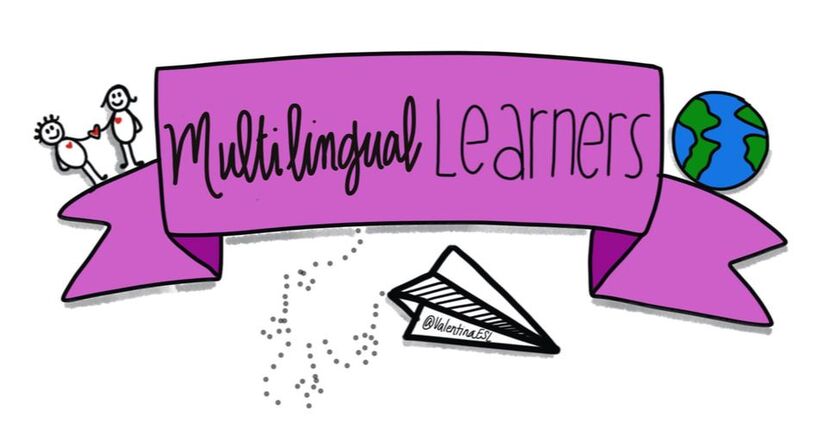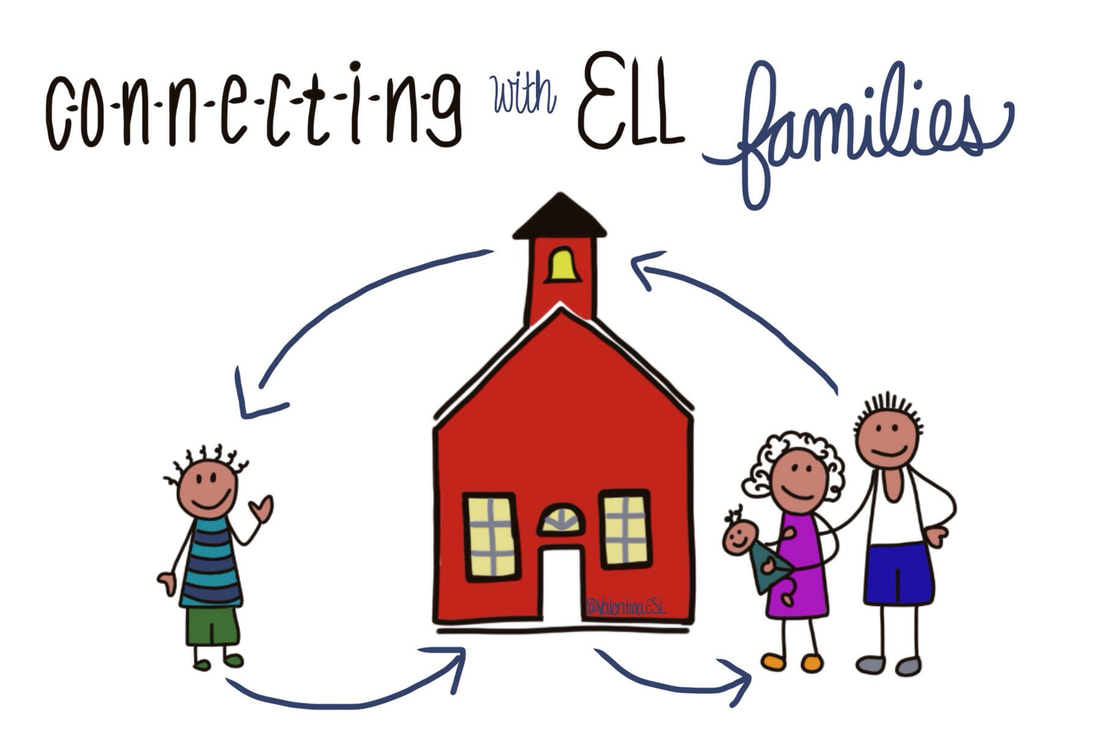|
Reflecting back on my own years in elementary school, I bet my parents may have seemed like they were not very involved with my education. We were new immigrants. And they spoke very little English. Adding to that, the cultural norms for school interaction were different where we came from. It may have seemed to my teachers that my parents were absent from my education. In fact, they were extremely present (at home). But maybe not they way that my teachers expected them to be. Not in the traditional American sense. My parents didn't come to parent teacher conferences. Well, that would have been a challenge. My dad worked every minute of overtime that he possibly could just to keep a roof over our heads. We had one vehicle so that meant my mom was at home without transportation. And even if she could come up to the school, she had my baby sister to care for. Oh and my mom's English speaking skills were the least developed. But even with these challenges, my parents did support my education. They did what they could at home to enforce the importance of education. After all, we came to America for a better future. We came here so that my brother and I could have a great education and better lives than we would have had back home. My parents worked hard to instill values of education in us. They enforced homework, they told us bedtime stories, and they made sure that we understood that our teachers were the keepers of the knowledge. "Go to school. Listen and learn. Be good," they would tell us. Essentially this meant don't talk, and do what the teacher tells you to do.
Sound familiar? Do you know kids in your classroom like this? Are you thinking about particular students who might be in the same situation? It happens all the time. But what can we do to pull these families in? To break these barriers? Barriers like language and transportation, cultural differences, and childcare? How can we involve families in their child's education? Pull them in and include them? When I became a teacher myself, I began to see students like my former self and families like mine come to school. I realized that these families need something different than the emails we sent home or even the newsletters. Those things weren't reaching them. I recognized that the traditional parent teacher conferences and phone calls just weren't cutting it much like they didn't for my own family. Now there are other options, other ways to pull in ELL families and help them feel included. One of my recent favorites is TalkingPoints. It's similar to Remind101 but it is able translate the teacher's message into the parent's home language. AMAZING! TalkingPoints is a free online platform and an APP that breaks the language barrier! This helps us as educators to open the door of communication with ELL families. It's an excellent way to introduce yourself as the teacher, let parents know about things happening at school, and invite them to come for a conference or event. When parents respond, they can type in their native language and the teacher receives the message back in English! TalkingPoints is an entry point to involving and including parents in their child's education. See link below for more information on TalkingPoints. Once we get parents into schools, we have to help plug them in and connect them so they feel valued and included. Getting to know parents and their assets will help you do just that. Learn about your parents' skills and think creatively about how you can tap into them at school. For example, we once had a parent who was a professional photographer. He was able to help with the year book. Another parent was a doctor in her home country. She came to help when we learned about body systems. Ask parents what language they prefer any paperwork to be sent home in. Some parents will want paperwork sent home in English, but others prefer their native language. Asking is key. We don't want to offend anyone by sending home paperwork in the wrong language. Avoid making an assumption and just ask. If you have noticed that a parent is having a difficult time making it up to the school, think about a home visit. Some districts allow this powerful practice while others don't (so check with district policy). From personal experience I can tell you that home visits leave the biggest impression. When I was a child, my brother's first grade teacher used to come regularly to visit with my mom. To this day, I haven't figured out how they actually communicated, but I can tell you that we knew she cared. And that meant a lot. When visiting families, try involving the child in the conference. Allow the student to share progress and goals. When we take the time to connect with ELL families, we send them a message that we care, we want to support them, and that they are valued. Research shows that when parents are involved in their child's education their attendance is better, they do better in school, and they a higher rate of success in post secondary. There are many other ways to connect with ELL families. Please share with us how you connect! More on TalkingPoints by Tan and Jessica Bell here. More on Engaging Families by Larry Ferlazzo here. 3/6/2018 08:57:09 am
Thanks for sharing your insight!
valentina gonzalez
8/5/2018 01:33:35 pm
That is awesome! What great opportunities for your families.
Tan
3/6/2018 06:38:44 pm
Keep on sharing your expertise, Valentina! Our students, their families, and our teachers are the better for it!
valentina gonzalez
8/5/2018 01:31:24 pm
Thank you, Tan. Right back at you! You are fabulous!
Kaitlin Rodrigues
4/6/2018 10:02:22 am
25% of my elementary school are ELLs, and even more have Spanish speaking parents. For conferences we have translators for each grade (most ELLs are in the same classrooms). We recently began a partnership with a Hispanic center that offers adult ESL classes so we're pushing that-they also translate difficult conferences. We did home visits in the beginning of the year to some scholars but I'm going to push doing conferences in the home for those without transportation. I'm also pushing for multiple days of conferences to better accommodate our working families.
valentina gonzalez
8/5/2018 01:32:46 pm
Very impressive, Kaitlin! You are making a difference! Comments are closed.
|
Categories
All
|


 RSS Feed
RSS Feed
